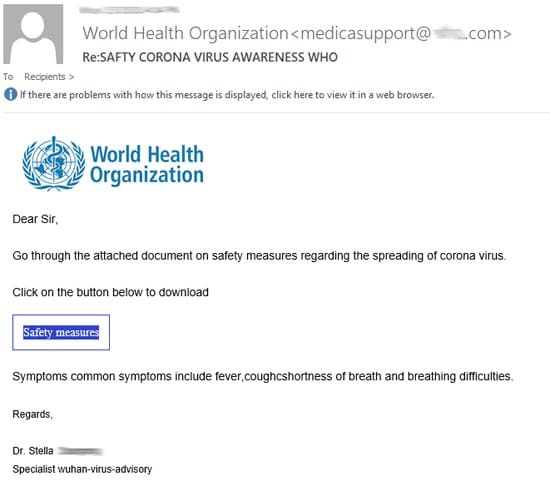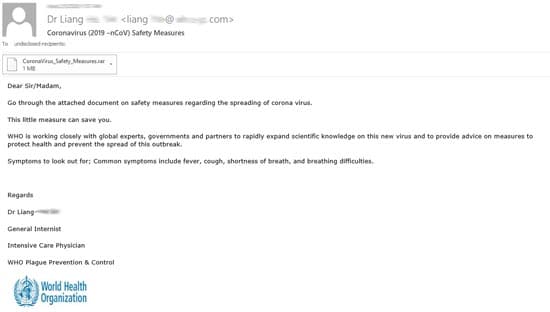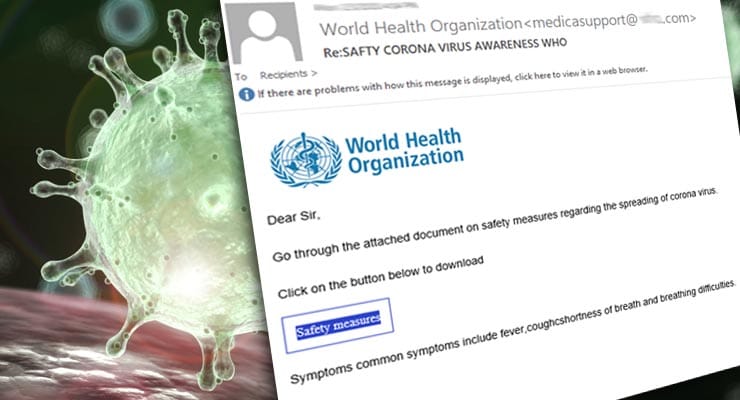Email scams are exploiting coronavirus to install malware
A number of scam emails are being circulated that purport to offer advice or important information on avoiding the coronavirus in a bid to trick email recipients into opening dangerous email attachments or visiting malicious websites.
A number of differently worded emails are circulating, many of which are claiming to provide important “safety measures” or guidance to help protect the public against the spreading coronavirus. For example the below email has been spreading in early 2020.

Dear Sir,
Go through the attached document on safety measures regarding the spreading of corona virus. This little measure can save you.
Use the link below to download.
Safety Measures.pdf
Symptoms Common symptoms include fever, cough, shortness of breath, and breathing difficulties.
Regards
Such emails, like the one above, can contain valid information about coronavirus to make them appear more convincing. However the link leads to a dangerous payload that once downloaded will install malware onto a victim’s device.
Other examples of these scams can be seen below.


Such emails may appear to come from trusted entities such as the World Health Organisation.
Such schemes are likely to try and install malware such as spyware or strains of ransomware which can prevent you accessing important files on your computer until you pay money for a decryption key.
We recommend getting your advice concerning coronavirus from trusted outlets, such as the website of the World Health Organisation or from bodies such as the UK’s National Health Service (NHS) or the USA’s Centers for Disease Control and Prevention (CDC.)
Sponsored Content. Continued below...
Malware scammers frequently use national headlines and seasonal events to infect victims. For example, scammers often exploit tax deadlines to trick victim’s into clicking malicious phishing links or opening malicious email attachments.
And headlines like coronavirus offer the perfect bait for scaremongering emails designed to alarm and panic recipients, which increases the likelihood that they will compromise their own security by opening attachments or clicking links.
We recommend ignoring and deleting any unsolicited emails pertaining to coronavirus, especially if they request you click links or open attachments. Any advice or directions you need about it can be obtained from the websites of the aforementioned entities.
Continued below...
Thanks for reading, we hope this article helped, but before you leave us for greener pastures, please help us out.
We're hoping to be totally ad-free by 2025 - after all, no one likes online adverts, and all they do is get in the way and slow everything down. But of course we still have fees and costs to pay, so please, please consider becoming a Facebook supporter! It costs only 0.99p (~$1.30) a month (you can stop at any time) and ensures we can still keep posting Cybersecurity themed content to help keep our communities safe and scam-free. You can subscribe here
Remember, we're active on social media - so follow us on Facebook, Bluesky, Instagram and X
